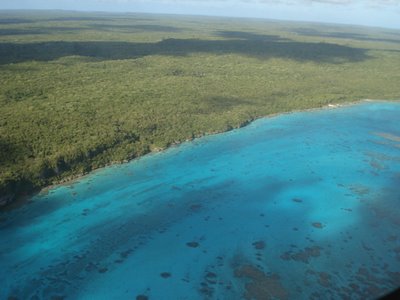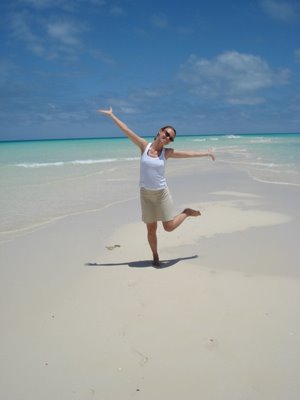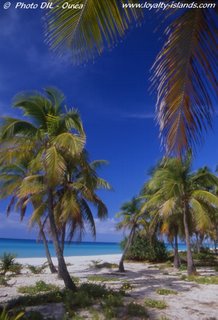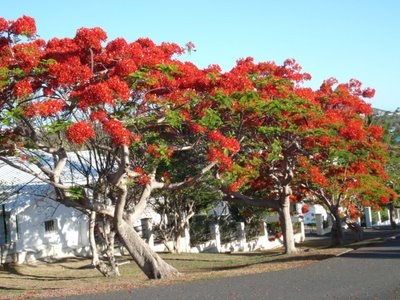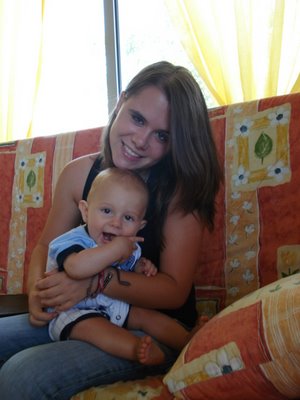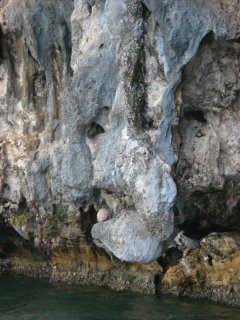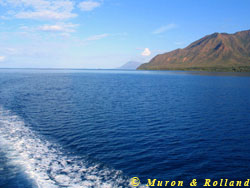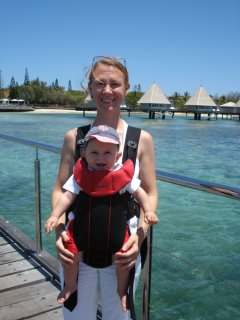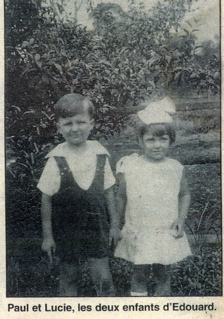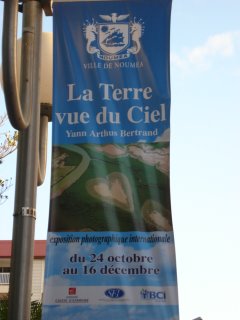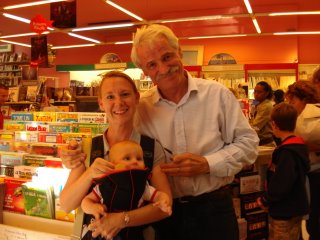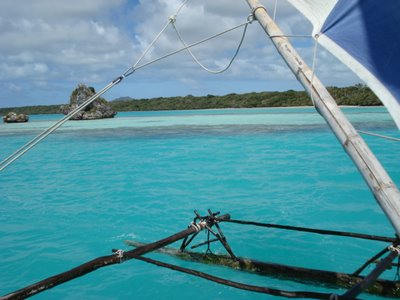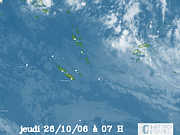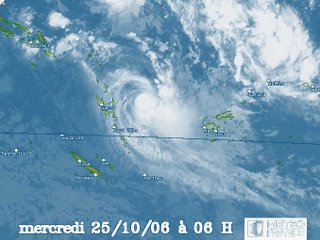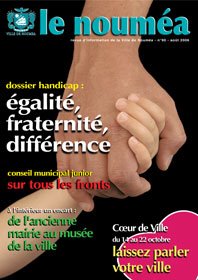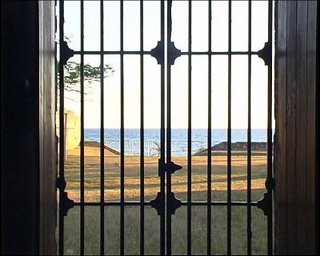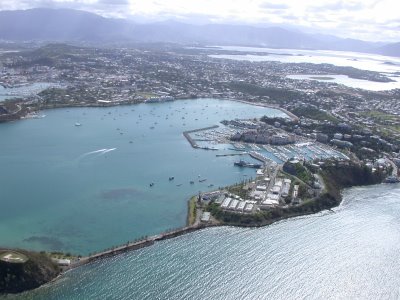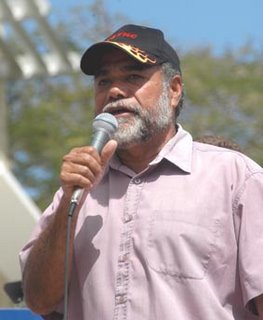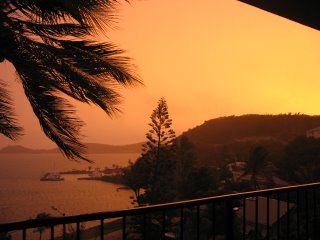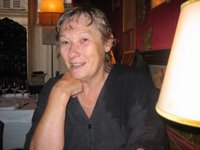Lucie Agez was born on the southeast coast of New Caledonia, in Canala, in 1924. She was born to
Caldoche parents - of German and French descent. Her childhood was idyllic until her father died when she was 12. Sadly, she and her older brother, Paul, were placed in an orphanage following her father's passing. But loss at such a tender age seems to have infused Lucie with tremendous strength and courage, which later helped her face life's later challenges.
Fast forward to World War II. In 1945, Lucie was 21 and worked at a local restaurant called the "Tradewinds". (You may recall that the Americans occupied New Caledonia during World War II - to prevent Australia from being attacked by the Japanese.) Turns out, Lucie was living with a cousin who had taken her in once she turned of age. Just across from her cousin's place there was a military radio station being guarded by a handsome young military policeman named Clarence Mickelson (aka "Mike"). Mike was also a talented mason. On his time off, he built a wall under the house Lucie and her cousin were living in. He also frequented the "Tradewinds" where he downed many a cup of java, his favourite beverage, and came to know dear Lucie.
When the war ended, the American soldiers returned home. Lucie's dashing young man, Mike, was one of them. What was to happen to our fledgling young couple?
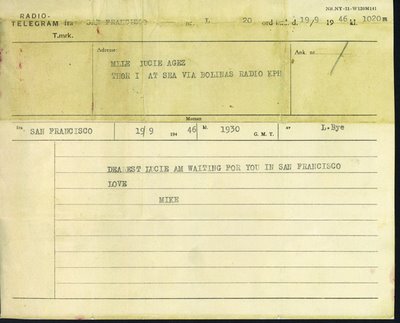
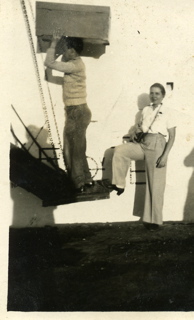
Yes, Mike sent for Lucie. Upon arriving in the American midwest, Lucie's coffee-drinking military policeman drove across the United States to San Francisco. He wired Lucie to come.
Lucie, whose English was as fledgling as her new love, who had never left New Caledonia (a tiny unknown French-speaking island in the South Pacific), who had no promises before her beyond those proffered her by her
coffee-drinking American soldier man, packed up what little she had, bought a ticket for $300-$400, boarded a cargo ship for Norway (the "Thor I"), travelled three weeks by sea and disembarked in an entirely foreign land. Folly, you say? Uncontestable courage, I say. Lucie
left everything she knew behind (including a brother and cousin she loved dearly) -
in 1946 as a single woman - to commence an unsure adventure where snow was exotic and unknown to her, midwestern Americans at times a little less than welcoming, and
French bread, sunny skies and island life forever lost to her. (Lucie was to visit her native land nearly 30 years later when her husband died.)
Lucie and Mike went on to have four daughters and one son. She learned English and adopted American customs and traditions as her own. I believe she kept the story of her native land quietly to herself as she acclimated to the American midwest. I am certain her many grandchildren and great-grandchildren are extremely proud of her courage, heritage and strength. Lucie is truly une femme extraordinaire !
(Many thanks to Lucie and her family for giving me permission to share her story.)